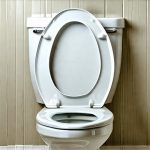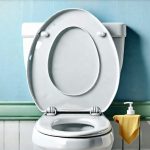The body operates as an intricate network, where seemingly separate systems are deeply interconnected. Often, we focus on individual complaints – a headache, fatigue, digestive discomfort – without recognizing how they might be linked to habits we consider innocuous. One such habit, frequently dismissed as a minor inconvenience, is routinely suppressing the urge to urinate first thing in the morning. While it seems like simply postponing something easily addressed, consistently delaying urination can initiate a cascade of physiological effects that extend far beyond the bladder itself, potentially impacting digestive function and overall well-being. This article will explore the surprising connection between holding urine and delayed gastric emptying, outlining the mechanisms at play and offering insights into mitigating potential issues.
The practice of suppressing morning urges is often rooted in convenience or lifestyle factors – a desire to avoid interrupting sleep, a busy schedule, or simply a lack of immediate access to facilities. However, the bladder isn’t designed for prolonged retention. It’s a dynamic organ that regularly expands and contracts, signaling the need to void. Ignoring these signals repeatedly forces the body into a state of chronic low-level stress. This constant tension can disrupt the delicate balance between the nervous system, hormonal regulation, and visceral function – all critical components of healthy digestion. Furthermore, the pressure exerted on surrounding organs during bladder distension may contribute to mechanical interference with digestive processes, though this is an area requiring further research. Understanding more about [digestive panels that go beyond probiotics] can help identify underlying issues.
The Gut-Bladder Connection: A Nervous System Pathway
The surprising link between bladder control and digestive health isn’t a matter of direct physical proximity alone; it’s largely mediated by the autonomic nervous system. This system, responsible for involuntary bodily functions, has two primary branches: the sympathetic (fight-or-flight) and parasympathetic (rest-and-digest). Holding urine consistently activates the sympathetic nervous system. When we suppress the urge to void, the brain interprets this as a stressful situation, triggering a cascade of hormones like cortisol – the stress hormone. Chronically elevated cortisol levels are known to significantly impair digestive function in several ways.
Specifically, prolonged sympathetic activation can: – Reduce blood flow to the gastrointestinal tract, hindering nutrient absorption and slowing down peristalsis (the wave-like muscle contractions that move food through the digestive system). – Inhibit gastric emptying – the rate at which food moves from the stomach into the small intestine. This leads to feelings of fullness, bloating, and discomfort. – Disrupt the gut microbiome, the community of beneficial bacteria in our intestines crucial for digestion, immunity, and overall health. Learning [how digestive enzymes differ from probiotics] can help support a healthy microbiome.
This creates a vicious cycle: holding urine induces stress, stress impedes digestion, and digestive issues contribute to further stress and anxiety, potentially exacerbating the urge to suppress urination as a coping mechanism. It’s important to remember that this isn’t about one instance of postponing; it’s about the cumulative effect of consistently overriding natural bodily signals. The nervous system learns from these patterns, reinforcing the habit and solidifying the negative impact on both bladder and digestive function. Tracking [key takeaways from tracking digestive data over time] can help you understand your body’s unique responses.
Understanding Gastric Emptying & its Regulation
Gastric emptying is a complex process regulated by numerous factors, including the composition of food, the volume of chyme (partially digested food), hormonal signals, and – crucially – the state of the autonomic nervous system. A normal gastric emptying rate allows for efficient digestion and absorption of nutrients. However, when sympathetic nervous system dominance prevails due to chronic stress or habits like suppressing urination, this process slows down considerably.
Delayed gastric emptying manifests in a variety of uncomfortable symptoms: nausea, vomiting, early satiety (feeling full quickly), bloating, abdominal pain, and changes in appetite. In some cases, it can even lead to gastroesophageal reflux disease (GERD) as food remains in the stomach for longer periods. It’s also important to differentiate delayed gastric emptying from other conditions with similar symptoms, such as gastroparesis – a more serious medical condition often associated with diabetes or neurological disorders. If [digestive symptoms worse in the morning] are a concern, it’s best to seek guidance.
The interplay between the bladder and digestive system highlights the holistic nature of health. Ignoring one bodily signal can have far-reaching consequences for others. Recognizing this interconnectedness is essential for adopting habits that promote overall well-being. The body doesn’t operate in isolation; it’s a symphony of systems working together, and disrupting one part inevitably affects the whole.
Addressing Digestive Delay & Bladder Habits
If you suspect your digestive issues might be linked to suppressing morning urges, there are several steps you can take to address both the bladder habits and the resulting digestive discomfort. The first step is awareness. Pay attention to your body’s signals and consciously choose to respond to the urge to urinate when it arises. This may require adjusting your schedule or making small lifestyle changes to ensure convenient access to facilities.
Here’s a suggested approach: 1. Identify the Pattern: Track your urination habits for a week, noting when you experience urges and whether you suppress them. Also, record any digestive symptoms you experience. 2. Prioritize Voiding: Make it a priority to respond to the urge to urinate as soon as reasonably possible, especially in the morning. Avoid delaying unless absolutely necessary. 3. Stress Management Techniques: Incorporate stress-reducing activities into your daily routine, such as meditation, yoga, deep breathing exercises, or spending time in nature. This helps shift the autonomic nervous system from sympathetic to parasympathetic dominance. Establishing [hydration-first habits for morning digestive flow] is a great starting point.
Supporting Digestive Function Naturally
Beyond addressing bladder habits, there are several natural ways to support digestive function and mitigate the effects of delayed gastric emptying. Dietary changes can play a significant role. Focus on consuming easily digestible foods, such as cooked vegetables, lean proteins, and whole grains. Avoid processed foods, sugary drinks, and excessive amounts of fat, which can further burden the digestive system.
Probiotics – beneficial bacteria found in fermented foods like yogurt, kefir, and sauerkraut – can help restore balance to the gut microbiome. Similarly, prebiotics – types of fiber that feed these good bacteria – are abundant in onions, garlic, bananas and asparagus. Staying well-hydrated is also crucial for optimal digestion; aim for at least eight glasses of water per day. Gentle exercise, like walking or swimming, can stimulate peristalsis and promote regular bowel movements. Consider [foundational morning meals for a calm digestive start] to support overall health.
When to Seek Professional Guidance
While these strategies can be helpful for many individuals, it’s important to recognize when professional guidance is necessary. If your digestive symptoms are severe, persistent, or accompanied by other concerning signs – such as unexplained weight loss, blood in the stool, or chronic abdominal pain – consult a healthcare professional.
They can help rule out underlying medical conditions and recommend appropriate treatment options. Don’t self-diagnose or attempt to treat serious health issues without seeking expert advice. Remember that this article provides general information and is not intended as a substitute for medical diagnosis or treatment. The connection between bladder habits and digestive function is complex, and individual responses may vary. A personalized approach, guided by a healthcare professional, is always the best course of action. [Digestive tests that work for people on the move] can help gain clarity about your gut health.


















